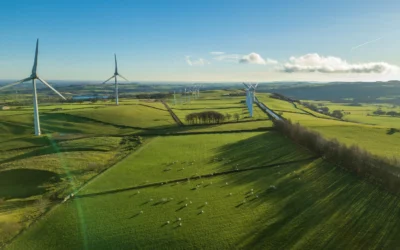The UK’s industrial sector has a powerful new ally in its quest to cut emissions: the Industrial Decarbonization AI Coalition (IDAIC). This freshly announced initiative aims to harness artificial intelligence (AI) to address one of the toughest climate challenges — reducing the climate harm from industrial processes.
A Bold Response to a Critical Challenge
The industrial sector remains a major source of carbon emissions globally, with foundational industries like cement, steel, and glass producing over 20% of the world’s emissions. Despite a global decarbonisation rate of just 2.5% in 2022, reaching the critical 1.5°C climate target requires a year-on-year reduction of 17.2%. The IDAIC seeks to close this gap by accelerating the adoption of AI-driven solutions.
The coalition brings together key players including Innovate UK Business Connect, Nexus Climate, Cleantech for UK, Make UK, the World Cement Association, and leading AI research hubs such as the Industrial Decarbonisation Research and Innovation Centre and the International Research Centre on Artificial Intelligence (IRCAI). AI innovators like Carbon Re and A3&Co. are also on board.
Sherif Elsayed-Ali, co-founder of Nexus Climate, emphasized the UK’s unique advantage: “We have some of the best materials and engineering research bases in the world, combined with one of the top AI ecosystems globally. The UK is in a prime position to lead in AI-driven industrial decarbonisation.”
Key Areas of Focus
The coalition will initially concentrate on advancing AI for industrial process optimisation, materials discovery, and predictive maintenance. AI could revolutionise the sector by enabling smarter supply chains, reducing downtime through predictive maintenance, and developing carbon-efficient materials.
Chris Pilgrim from Innovate UK Business Connect noted, “AI’s potential is widely recognised, yet its role in industrial decarbonisation remains underexplored. The coalition aims to change that.”
Industry Perspective: A System Under Strain
In a Spotlight Live interview with Climate Solutions News, Sarah Mackintosh, Director of Cleantech for UK and a founding partner of the IDAIC, highlighted the economic and competitive pressures facing UK industry. “Our industrial sector is already under immense pressure from global competitors like China. AI can help UK industries meet their climate targets while boosting competitiveness and strengthening supply chains,” she explained.
However, industrial players have historically been cautious about adopting new technologies, particularly those requiring significant upfront investment. Mackintosh acknowledged these barriers: “These companies have thin margins and can be risk-averse. They don’t always have the capacity to shut down and retrofit for AI.”
One of the coalition’s goals is fostering collaboration among businesses that have traditionally operated in competitive silos. “We want to encourage better data sharing and best-practice exchanges. Industry players haven’t done much of that before because of competition,” she added.
UK Policy Landscape: Progress and Challenges
Mackintosh also called for greater policy consistency from the UK Government. “We’ve seen a lot of policy inconsistency and frequent changes in energy ministers, which has cost us ground in climate leadership,” she said.
Still, recent government measures have been encouraging. Mackintosh highlighted the establishment of the National Wealth Fund and GB Energy as positive signals: “These initiatives could attract investors by showing that the UK is serious about reclaiming its leadership in clean technology.”
Planning and grid connectivity remain persistent bottlenecks. “The planning process is slow, and grid connection delays are frustrating. But reforms are underway, which is a step in the right direction,” she noted.
Future Outlook
With the IDAIC now live, its success will depend on industry buy-in, policy support, and continuous innovation. The coalition is currently accepting new members from manufacturers, startups, and research institutions eager to explore AI-driven climate solutions. Interested organisations should get in touch via the website, IDAIC.org.
As the global climate clock ticks, the IDAIC’s AI-powered push offers a much-needed technological boost for the UK’s industrial decarbonization efforts. By combining technological ingenuity with collaborative ambition, it could set a precedent for industrial sustainability worldwide.




